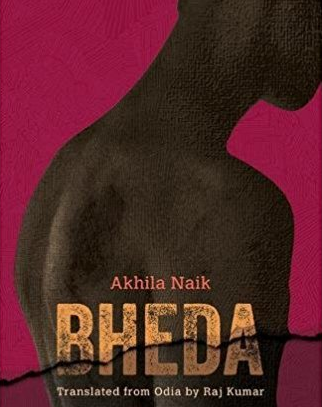By Uttirna Gnanadipta
 Reading Akhila Naik’s Bheda shows you the harsh reality of caste discrimination that still keeps Dalits in our society marginalised and oppressed.
Reading Akhila Naik’s Bheda shows you the harsh reality of caste discrimination that still keeps Dalits in our society marginalised and oppressed.
Akhila traces the genesis of caste discrimination from its naming to its percolation in the society. The introductory note of the book that lists four Odia novels on caste discrimination being untraceable now is a revelation.
As young India readies itself to embark on a dialogue on emerging humanitarian issues, most of us have chosen to remain blissfully oblivious of the caste atrocities heaped on the lower rung of the nation even now. Dalit literature like this needs to have a greater reach. With its English translation, Raj Kumar has endeavored to get a pan-Indian readership for this Dalit tale.
‘Bheda’, meaning ‘discrimination’, tells the story of Laltu, the protagonist, who emerges as a Dalit activist and turns against the local political leaders. It is also about the generational gap and the differences in perception among Dalits themselves on how to fight caste discrimination. Laltu believes in spreading awareness about caste atrocities through activism while Dina Mastre, his father, believes in emancipation through Gandhian non-violence. At another level, it is also about how Dina Mastre’s wife, Mastrani, tries to get acceptance from the upper castes and about the various shakhas launched by Baya lawyer to make the Doms (Dalits) believe that everyone is a Hindu.
Bheda talks of defiance, the complex upper class structure, the moderate lower class and the Dalit fight against the ruling class for a dignified life. This novel doesn’t give the reader the simple pleasure of reading; rather it strikes you hard while speaking about the ways of the world. It doesn’t just tell you about a bunch of Dalits defying the ‘bada log’ but also about the innumerable voices that are still unheard in India.
It was first published in 2008 in Odia magazine Paschima. Just like Akhila Naik, the novel too went unnoticed. The translator, Raj Kumar has dedicated this book to his daughter, remarking that her relocation to a metropolis has made her a stranger to caste discrimination. The translator has chosen to retain the original title that has multiple meanings, all relevant to the novel.
Akhila Naik comes from a Dom family in the hinterlands of Kalahandi in Odisha. He lived in a ‘Dom’ colony or the Dompada which is outside the Bhalpada where the ‘bhal lok’ live.
Arundhati Roy remarks that such novels are a form of apartheid that go unnoticed by the rest of the world; each book being a ‘movement’ in itself. Dalit literature has always been a distinct part of Indian literature and speaks unapologetically about a ‘movement’ that we have always failed to talk about.




 Kalinga AI
Kalinga AI